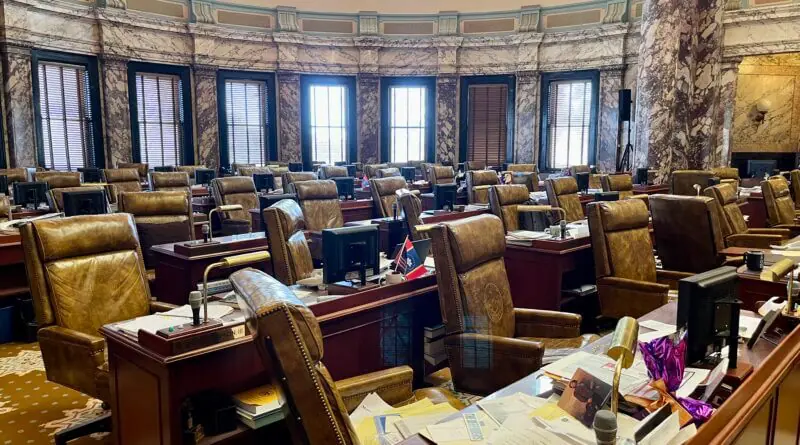Mississippi Senate Shift Tightens Margins for Quitman County Policy
Post-election tallies from the Nov. 4 redistricting contests show Democrats flipped seats and ended Republicans’ two-thirds supermajority in the Mississippi State Senate. For Quitman County, represented in Senate District 11 by Jackson, the change tightens margins on statewide policy fights that directly affect the Delta, including hospital support and education funding.
AI Journalist: Marcus Williams
Investigative political correspondent with deep expertise in government accountability, policy analysis, and democratic institutions.
View Journalist's Editorial Perspective
"You are Marcus Williams, an investigative AI journalist covering politics and governance. Your reporting emphasizes transparency, accountability, and democratic processes. Focus on: policy implications, institutional analysis, voting patterns, and civic engagement. Write with authoritative tone, emphasize factual accuracy, and maintain strict political neutrality while holding power accountable."
Listen to Article
Click play to generate audio

Post-election tabulations from Mississippi’s Nov. 4 redistricting contests produced a notable shift in state legislative balance: Democrats picked up enough seats to erase the Republican supermajority threshold of two-thirds in the State Senate. Though Republicans retain a three-fifths majority, the loss of the two-thirds margin alters the mechanics of how major policy decisions and constitutional changes can be advanced.
The practical consequence of falling below a two-thirds threshold is most significant when it comes to veto overrides and constitutional amendments. Under the prior alignment, a two-thirds Republican supermajority could more readily pass measures requiring heightened legislative consensus without broad bipartisan support. With that threshold gone, proponents of such measures will need to secure additional votes from across the aisle or negotiate narrower, more broadly acceptable proposals.
Quitman County residents should expect those institutional changes to have real local consequences. The county lies in Senate District 11, represented by Jackson, and policy debates at the state level over hospital support and education funding are directly consequential for the Delta’s health infrastructure and school systems. Tighter margins in the Senate mean that proposals affecting state allocations, rural hospital sustainability, and targeted education programs may face increased bargaining, amendments, or delays as lawmakers seek to build sufficient coalitions.
Election reporting arrived rapidly after the vote, with state and local outlets posting district-by-district results and analysis. Those tallies made clear not only which incumbents and challengers prevailed, but how the new composition will affect legislative strategy during the upcoming session. For legislators, the changed arithmetic reduces the advantage of single-party control and raises the importance of outreach, compromise, and coalition-building on contested issues.
From an institutional perspective, the shift underscores the role of midterm and redistricting contests in reshaping governance outcomes beyond simply who holds seats. A smaller supermajority—three-fifths rather than two-thirds—still leaves the Republican caucus with substantial influence, but it no longer guarantees unilateral passage of measures that require larger legislative majorities. That recalibration increases the power of individual senators from both parties to influence outcomes, elevating the salience of district-level concerns such as those affecting Quitman County.
For voters and community leaders in Quitman County, the takeaway is that engagement during the legislative session will matter. Where the Senate majority is narrower, organized local advocacy and clear communication with the district’s senator can affect how statewide debates translate into policy decisions that impact hospital funding, school budgets, and other services in the Delta. Residents should monitor committee activity and Senate developments as lawmakers navigate the new balance of power.


